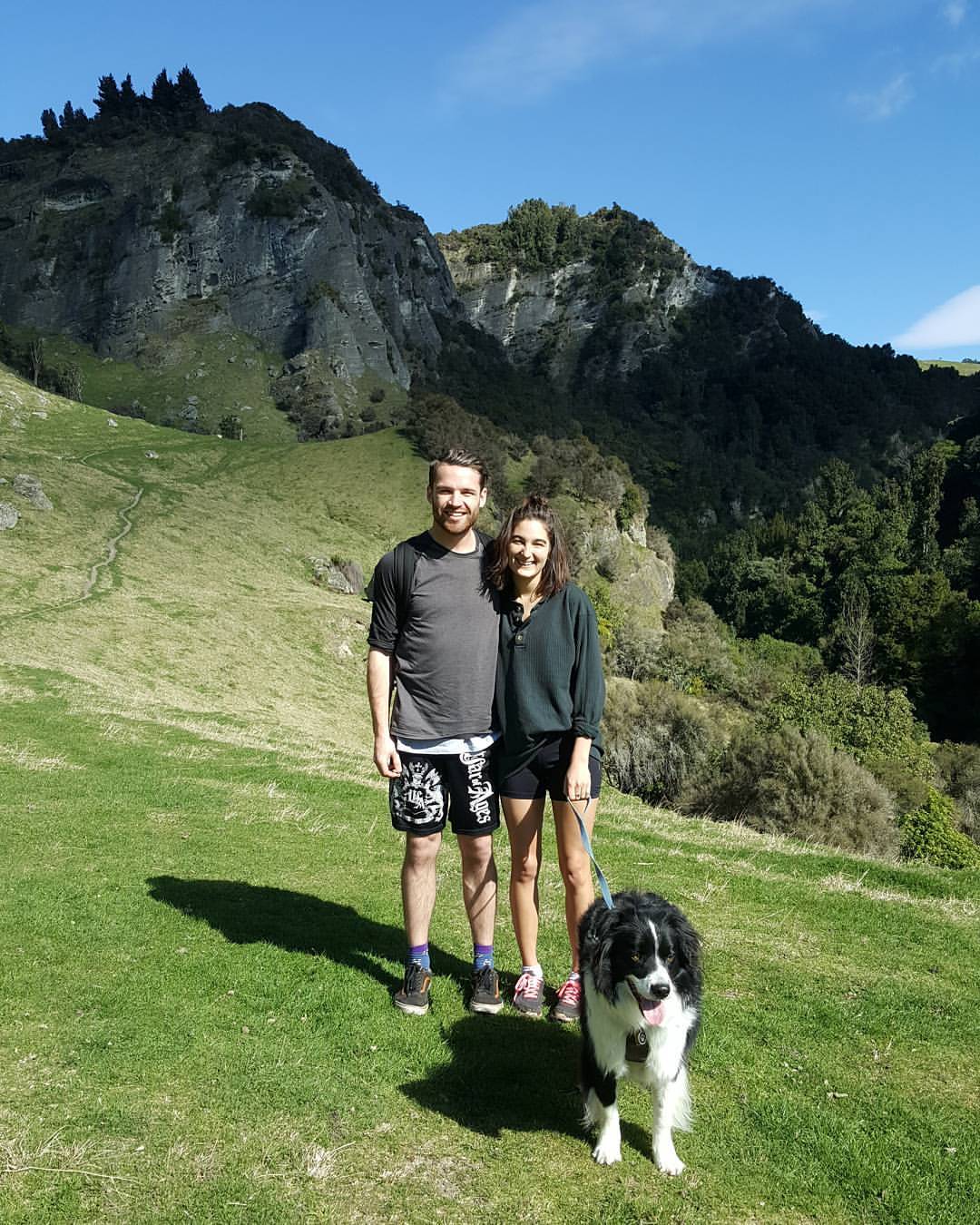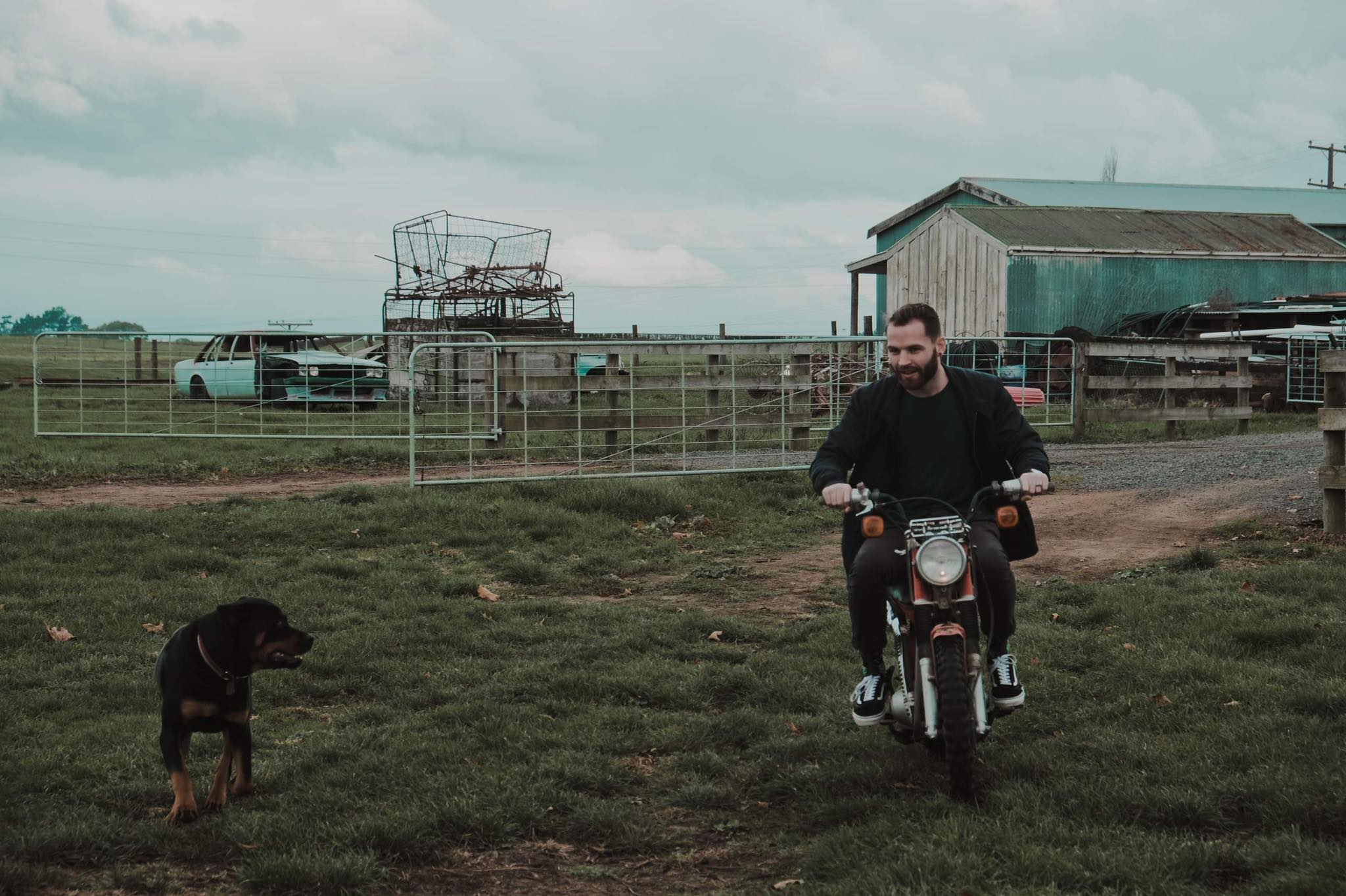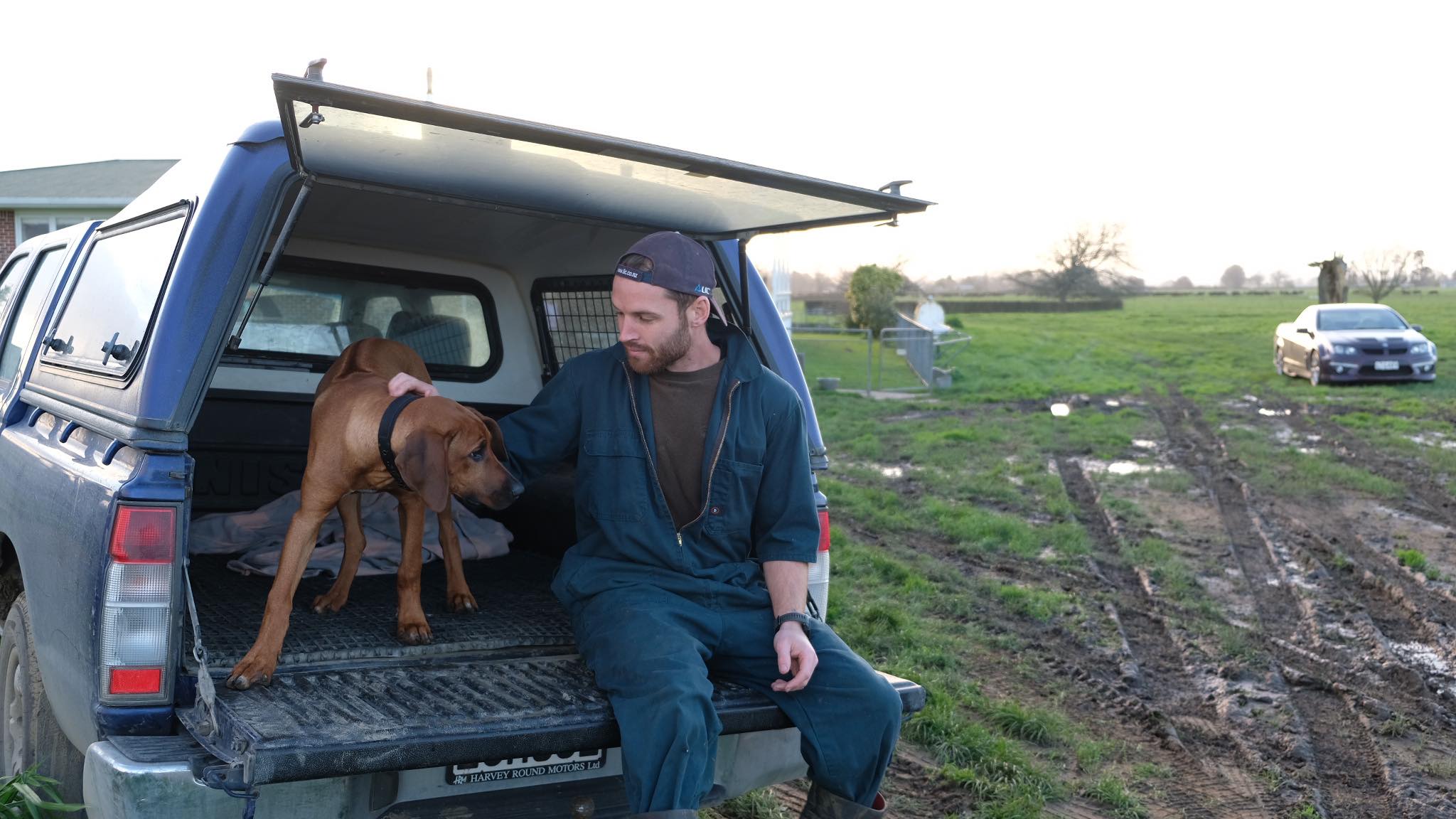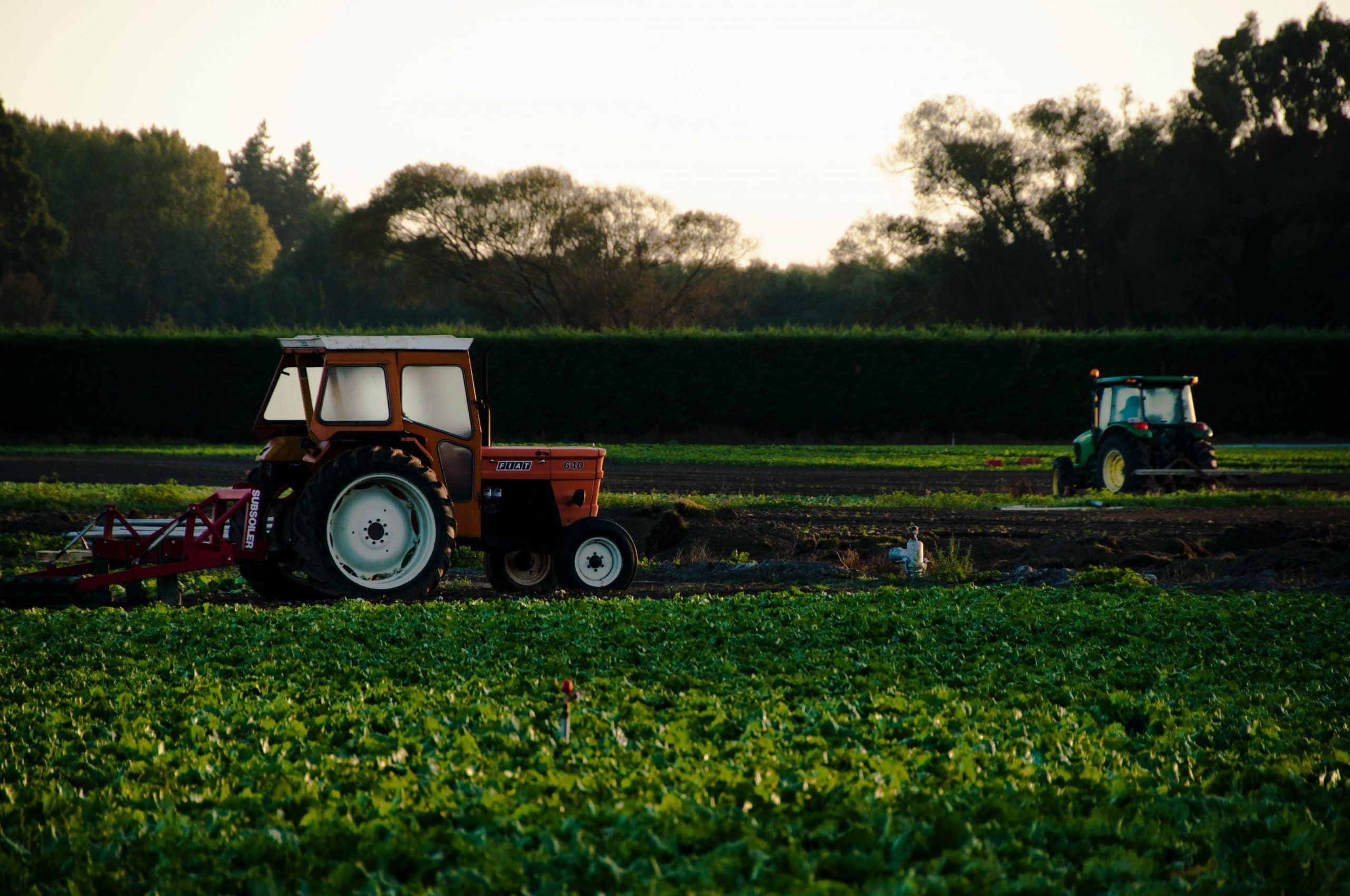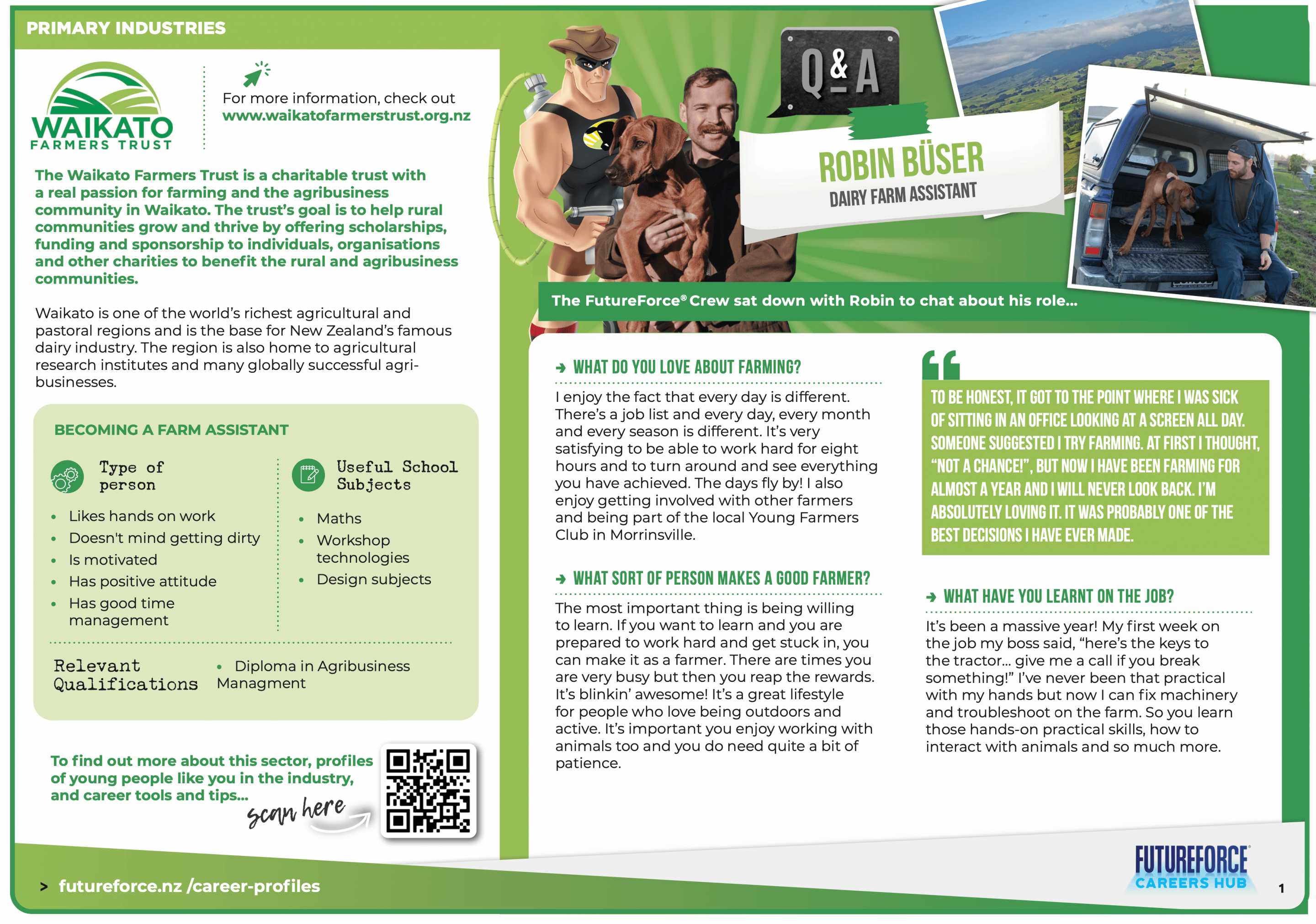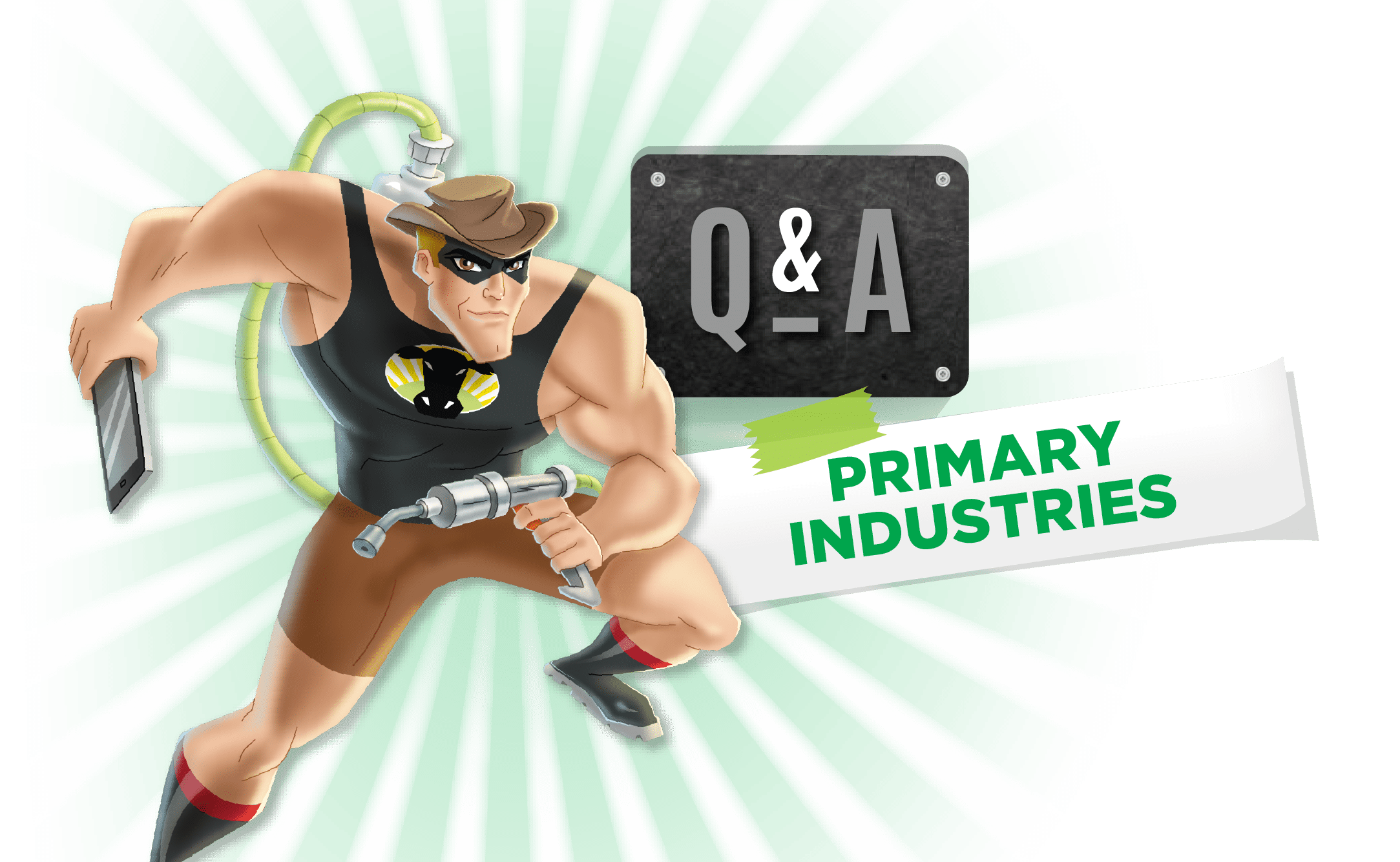

Waikato is one of the world’s richest agricultural and pastoral regions and is the heart of New Zealand’s famous dairy industry. The region is also home to agricultural research institutes and many globally successful agri-businesses.
In many cases training is part of the job, so you can upskill while you earn. Other courses are available free as part of the government’s Targeted Training and Apprenticeship Fund. Primary Industry Training Organisation (ITO) and other organisations also offer a range of short taster courses for those who want to see if becoming a farmer is right for them.
Former St John’s College student Robin Büser, of Morrinsville, gained a Degree in marketing from the University of Waikato and worked in several marketing roles before deciding farm life is for him.
The FutureForce® Team chatted with Robin, a Dairy Farm Assistant, to find out what inspired his change of career, and what he loves about life on the farm…
Robin Büser
Dairy Farm
Assistant
“To be honest, it got to the point where I was sick of sitting in an office looking at a screen all day. Someone suggested I try farming. At first I thought, “Not a chance!”, but now I have been farming for almost a year and I will never look back. I’m absolutely loving it. It was probably one of the best decisions I have ever made.”
A Chat with Robin about his role
Robin Büser
Dairy Farm Assistant
Former St John’s College Student
What do you love about farming?
I enjoy the fact that every day is different. There’s a job list and every day, every month and every season is different. It’s very satisfying to be able to work hard for eight hours and to turn around and see everything you have achieved. The days fly by! I also enjoy getting involved with other farmers and being part of the local Young Farmers Club in Morrinsville.
What kind of person makes a good farmer?
The most important thing is being willing to learn. If you want to learn and you are prepared to work hard and get stuck in, you can make it as a farmer. There are times you are very busy but then you reap the rewards. It’s blinkin’ awesome! It’s a great lifestyle for people who love being outdoors and active. It’s important you enjoy working with animals too and you do need quite a bit of patience.
What school subjects do you find useful on the job?
Maths is probably the most useful, because you need to measure out feed or fertiliser quantities, but it’s pretty straight forward so you can pick it up as you go.
Are you doing any other study at the moment?
It’s wicked at the moment because there is free trades training through the Government. I am doing Level 3 courses through the Primary ITO, including Livestock Husbandry and Effluent Management Planning. Other courses at that level are Pastoral Livestock Production (Feeding), tractor or quad bike operation micro-credentials. For Dairy Farming, there are also apprenticeships and Level 2 courses such as Agriculture Skills, and you could go on to complete a Diploma in Agribusiness Management Level 5. You could also go on to learn other aspects of the business, like sales or agribusiness.
What have you learnt on the job?
It’s been a massive year! My first week on the job my boss said, “here’s the keys to the tractor… give me a call if you break something!” I’ve never been that practical with my hands but now I can fix machinery and troubleshoot on the farm. So you learn those hands-on practical skills, how to interact with animals and so much more.
What advice would you give to someone thinking about their career?
Don’t be too fussed about the job you’re doing because wherever you are, you will be learning. So long as you’re working with a good team of people and a good boss, that’s the most important thing. People go through many career changes, so you are never stuck doing something forever. Just give something a go! Make a list of ideas and think about what you would most like to do. Don’t be afraid of getting it wrong – you can always change your mind and do something else.
What would you say to someone thinking about farming?
Give it a go! There are many opportunities and lots of people looking for workers so you will never struggle to find a job. It’s not all sunshine – some days are rainy and messy, and it’s always hard work – but then there are the fantastic days, and every day is satisfying. Just get amongst it! The best thing I did was get involved with the Young Farmers Club because it’s good to spend time with other people in the industry. You can encourage each other to grow and learn. Sometimes it can get tough, so it’s good to have a community to support you.
How do you manage work-life balance and stress?
It’s certainly been a big adjustment for me in terms of work-life balance. You have to get used to the routine of early mornings and not being home every weekend. It’s important to have a conversation with your boss in terms of expectations, so you know when your days off are. Getting regular breaks throughout the day is important too. It’s important to keep the lines of communication open with your boss, and talk to them if you have any struggles or concerns.
What's the best career advice you've ever received?
When I was deciding what to do with my career, I caught up with my manager at the university and told her I had been offered a job in farming. She said I should think about what I wanted to wake up for every day, and there was no harm in giving it a go. There’s no job you can do where you won’t be learning something – lots of skills can transfer across a wide range of careers… people skills, time management, technical skills… they’re all relevant.
What are your career ambitions?
Eventually I’d like to buy my own herd and get into sharemilking. I’d like to own a farm one day. In the meantime, I am still learning every day, so I am happy where I am at.
On the job
What do you do at work?
Robin’s tasks at work include:
» Milking and caring for 270 dairy cattle
» Fixing and building fences
» Feeding out
» Calving
» Spreading fertiliser
» Tractor work
» Maintaining equipment and machinery
» Spraying weeds
» Following health and safety procedures
» Pest control
Farming may come with perks, such as:
- Free or subsidised housing
- Free or subsidised power, phone, food, milk or meat
- Transport or petrol allowances
- Training and education
- Production and performance bonuses
About Waikato Farmers Trust
The Waikato Farmers Trust is a charitable trust with a real passion for farming and the agribusiness community in Waikato. The trust’s goal is to help rural communities grow and thrive by offering scholarships, funding and sponsorship to individuals, organisations and other charities to benefit the rural and agribusiness communities.
VISION: Growing knowledge in rural Waikato and supporting the well-being of rural communities.



